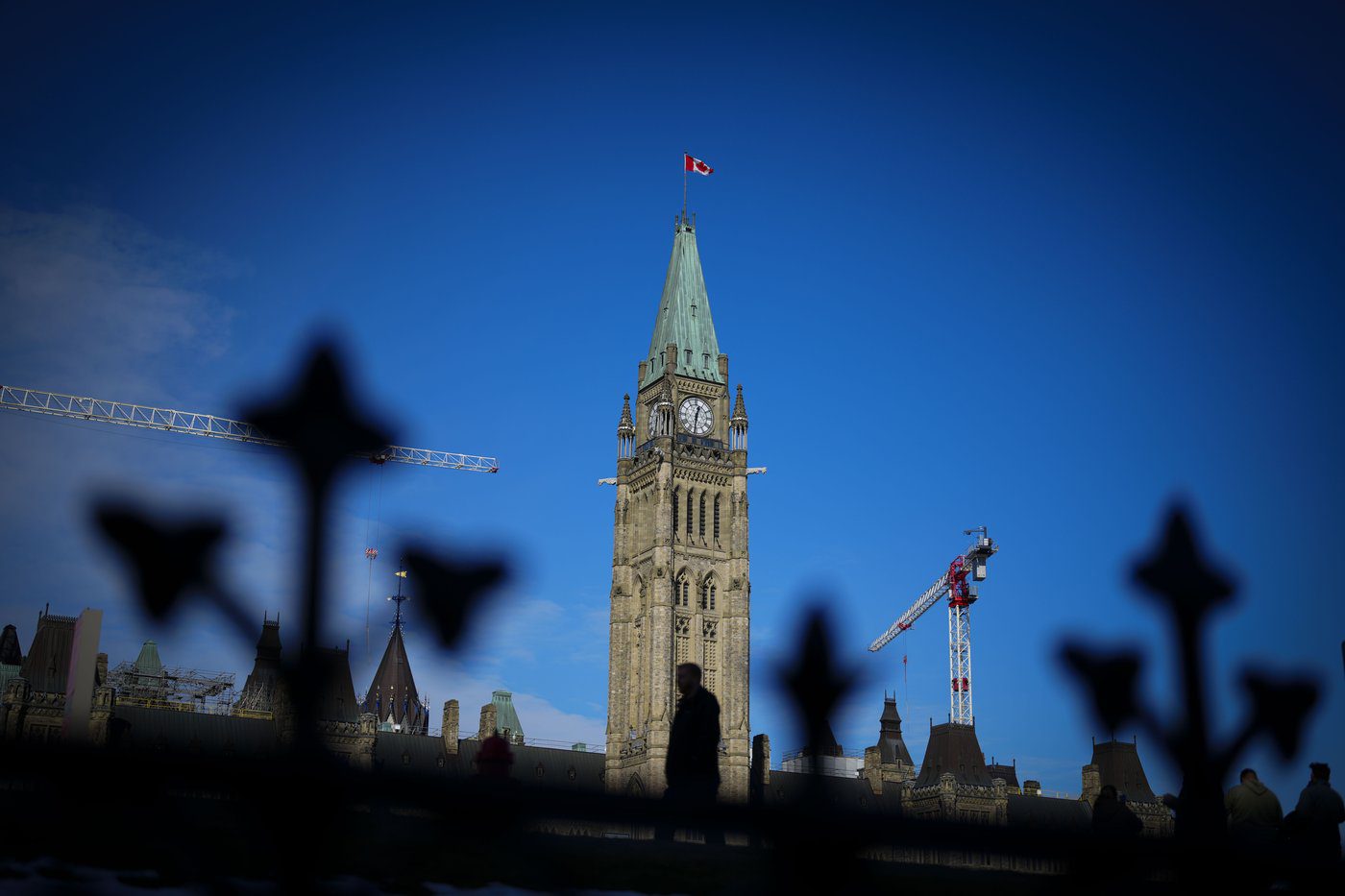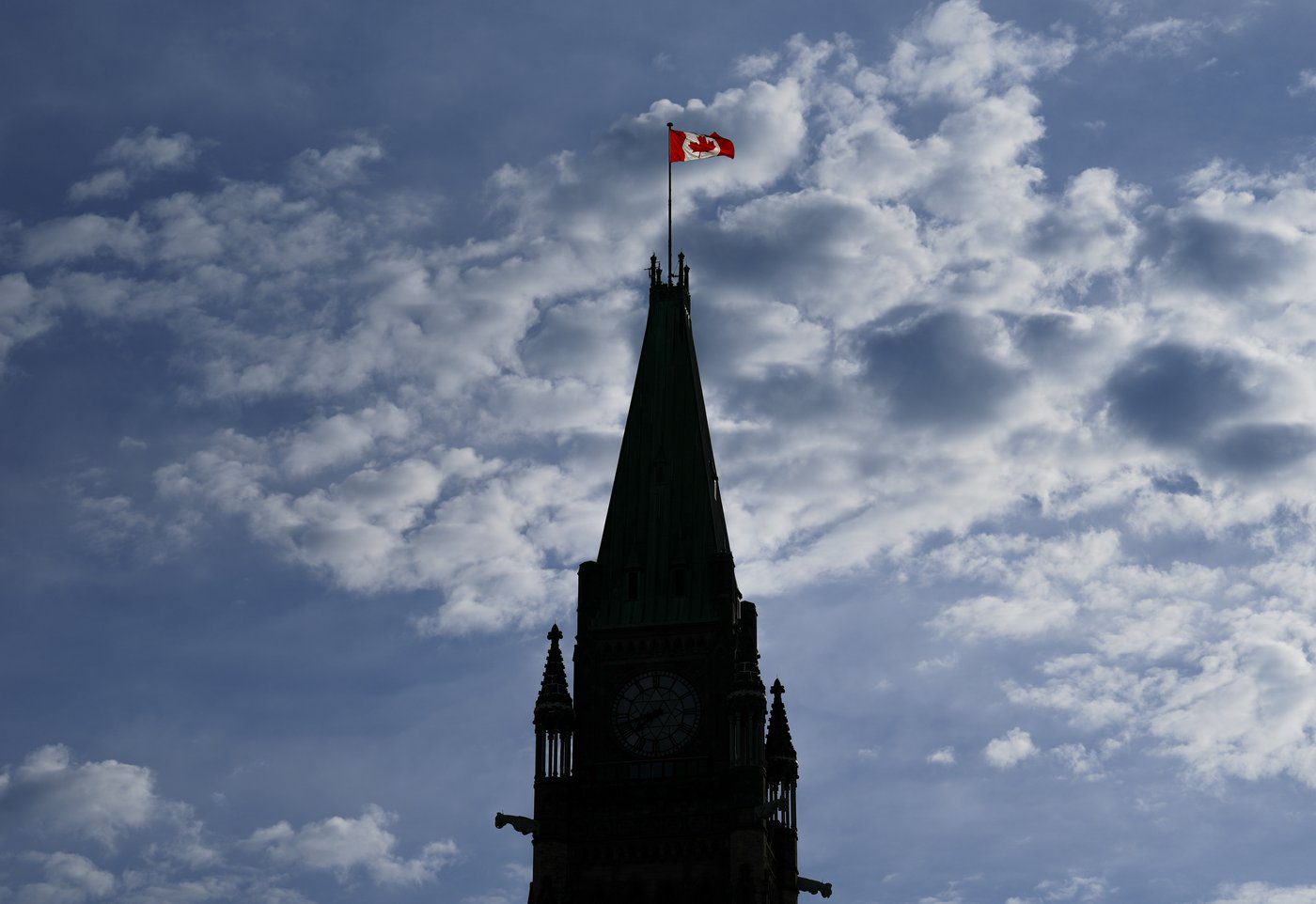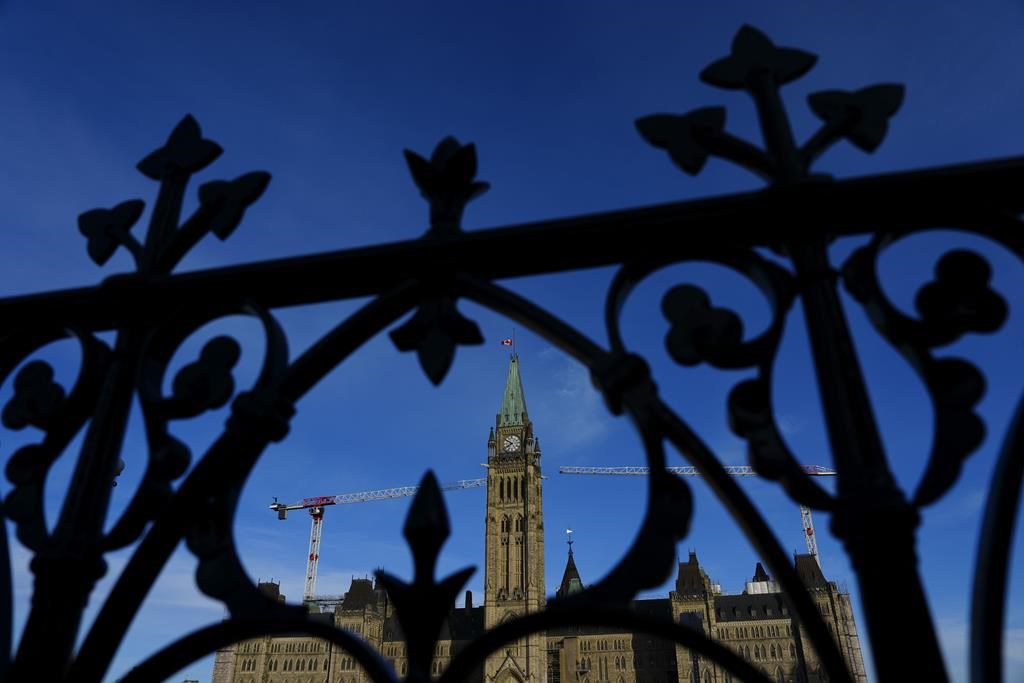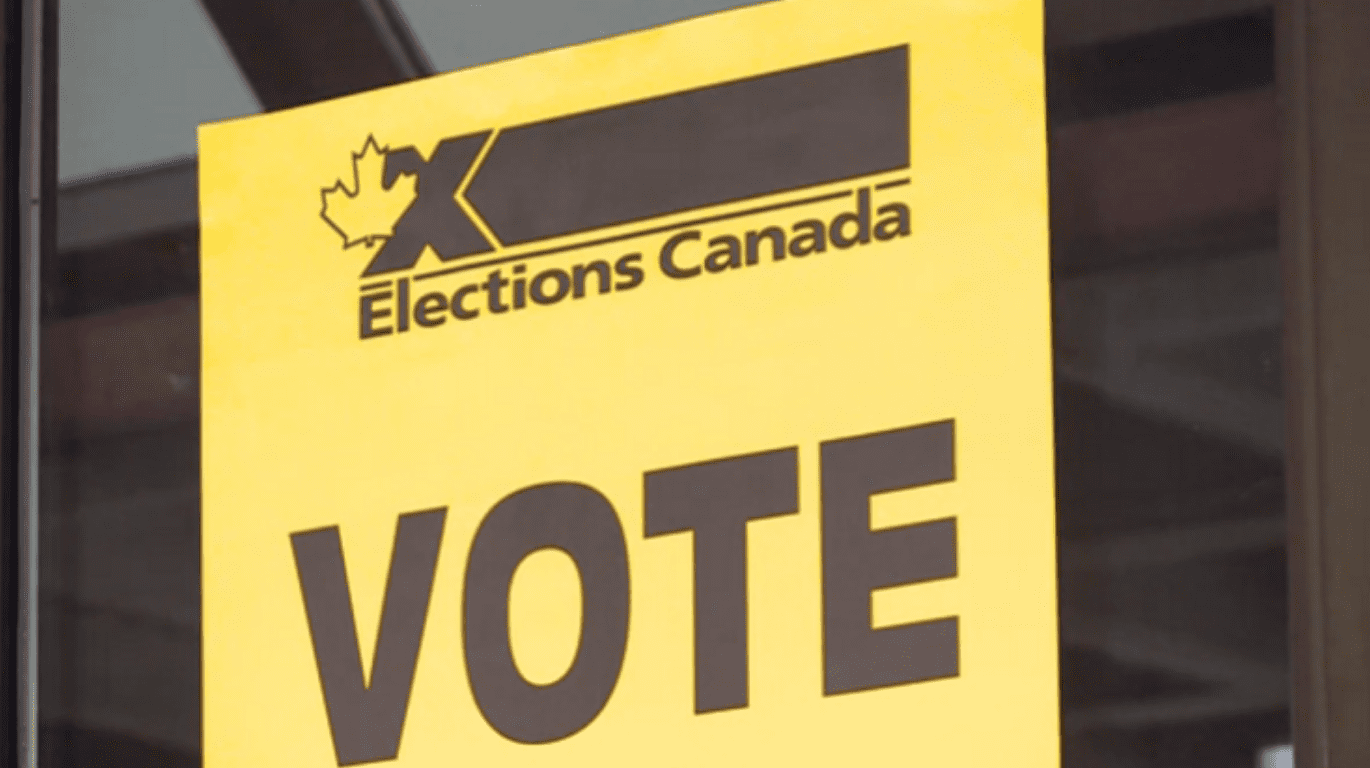This content is restricted to subscribers

The views, opinions and positions expressed by columnists and contributors are the author’s alone. They do not inherently or expressly reflect the views, opinions and/or positions of our publication.

This content is restricted to subscribers
The views, opinions and positions expressed by columnists and contributors are the author’s alone. They do not inherently or expressly reflect the views, opinions and/or positions of our publication.

This content is restricted to subscribers
The views, opinions and positions expressed by columnists and contributors are the author’s alone. They do not inherently or expressly reflect the views, opinions and/or positions of our publication.

This content is restricted to subscribers
The views, opinions and positions expressed by columnists and contributors are the author’s alone. They do not inherently or expressly reflect the views, opinions and/or positions of our publication.

Sorry, Toronto Centre residents, but the number of election polls in your riding has been reduced by 84 percent.
Sincere apologies, university and college students, but the Vote on Campus program has been axed.
Pardon us, Indigenous communities, but a paltry $100 is all we’re willing to offer to use your community hall on elections day – and clean-up costs will be on you.
2021 has certainly put the “snap” in snap election.
With Prime Minister Justin Trudeau unsatisfied at having to share power, Canadians find themselves thrust into an early federal election, the first in a decade. As the campaign began to unfold, details gradually emerged that this election wouldn’t be quite what Canadians had become accustomed to.
Voting – the entire point of an election – would be a more cumbersome task.
Locations where Canadians cast their ballots – polling stations – were reduced in number, drastically in some ridings, especially in Ontario. The Vote on Campus program that had been tremendously successful at encouraging tertiary students to vote, often for the first time, was mothballed. And, if unconfirmed reports are accurate, Elections Canada didn’t exactly exert itself to ensure Indigenous people could vote in their community, allegedly offering low compensation for rental venues on some reserves.
When asked why voting would be available at fewer places this year, Elections Canada offered two alibis: the pandemic, and the “minority government situation” (or more accurately, the early election).
These excuses are somewhat reasonable. To avoid COVID transmission, Elections Canada has hired fewer but larger venues to serve as polling stations. This explains why the quantity has been curtailed, although whether the reduction need be so severe is questionable, as it’s particularly impactful on disabled and elderly voters.
However, the adjournment of the Vote on Campus program is especially unwelcome. Born as a response to the 2008 election’s woefully low turnout rate, which plummeted to a depth unseen since the late 1800s, the program facilitated convenient voting for university and college students, resulting in a hefty boost to turnout in the 2015 and 2019 elections.
Cancelling student-focused election polls is especially irksome considering that Elections Canada will continue to operate polling stations at seniors’ residences and long-term care facilities. Voting should be convenient for every demographic, but withdrawing services aimed at Canadians with the lowest turnout rate while preserving similar programs for those with the highest voting levels is a perplexing decision.
It’s important to realize that previous efforts to expand voter outreach, such as the Vote on Campus program, were possible due to the implementation of fixed election dates. Scheduling the 2015 and 2019 elections years in advance allowed Elections Canada the certainty to organize a variety of new methods to encourage people to vote.
And that’s the problem with Trudeau’s snap election: despite the repeated hints, it technically came as a surprise to Elections Canada bureaucrats, who are left with a mere 36 days to organize an early election, rather than four years. Due to logistical constraints, programs such as Vote on Campus became a casualty, as undoubtedly so too will the turnout rate.
Unfortunately for voter engagement efforts, 2021 isn’t likely to be Canada’s last snap election. Our Parliament doesn’t feature set “terms” like in American politics – instead, we have parliamentary confidence, and the loss of confidence can trigger general elections at any time.
Hung parliaments, which typically result in minority governments, have become the norm in Canada – four of the past six federal elections have ended without a majority government. The combination of a minority government and the first-past-the-post electoral system encourages the governing party to risk triggering a snap election whenever the polls look favourable to them, in the hope of increasing their seat count.
All of this threatens Elections Canada’s efforts to spend four years organizing expanded voter outreach, as a snap election can nullify years of planning.
But rather than bash the Prime Minister for calling a snap election – a perfectly valid action in Westminster parliamentary systems – we should instead ask how Elections Canada’s expanded voter outreach can be maintained in the event of early elections. And there’s no better way to do that than to invest in Canada’s democracy by giving Elections Canada more resources.
There are multiple ways to achieve this. One would be to increase Elections Canada’s budget, enabling them to hire more staff and not feel pressured to allegedly make insultingly low bids for rental venues. But there are also more inventive options, such as having a pool of federal civil servants available to be seconded to Elections Canada in the event of a snap election call.
Bestowing Elections Canada with additional resources to deal with snap elections isn’t a perfect solution, and would never be as seamless as elections that occur on their scheduled dates. For example, no matter how well Elections Canada is staffed, having only 36 days’ notice to book voting venues isn’t ideal. But because much of the logistical pinch is trying to force four years of work into just over five weeks, wielding the extra staff to hire venues should prevent polling stations from dwindling too low in number, and allow programs such as Vote on Campus to continue.
Considering the tremendous achievements at boosting voter turnout over the past decade, it would be indolent to shrug with indifference at the challenges that snap elections present. But Elections Canada can’t bridge the resources gap on their own: they require additional support from the government.
In the context of recent challenges to Western democracy, Canada can’t risk allowing voter turnout to decline, especially when snap elections are an expected occurrence in our parliamentary system. It’s particularly important that we encourage young adults to vote for the first time, which makes programs such as Vote on Campus absolutely vital.
If Canada is already paying more than $600 million to stage a general election, we might as well add a sprinkling of additional resources if it results in increased participation. For what are the costs of eroded democracy?
The views, opinions and positions expressed by columnists and contributors are the author’s alone. They do not inherently or expressly reflect the views, opinions and/or positions of our publication.

A decision was taken that will have a huge impact on the results of the 44th federal election. I am not talking about Justin Trudeau’s decision to trigger the election. I am not talking about the Debates’ Commission excluding Maxime Bernier. I am not talking about the fact that the Public Health Agency of Canada has gone silent in the midst of the COVID-19 fourth wave.
No, I am talking about Elections Canada’s poor decision to not allow voting stations on campuses across the country. Considering it is already hard enough to get young voters to participate in the democratic process and utilize their right to vote, this is a disheartening decision that risks disenfranchising millions of young voters.
Elections Canada alerted students about the situation via their twitter account.
ATTENTION STUDENTS! Many of you have asked us about whether you’ll be able to vote on campus for #Elxn44. Due to the challenges brought on by the pandemic and the minority government situation, we are not able to run the Vote-on-campus program this election. 1/3 #CdnPoli pic.twitter.com/VI4Z2zmpnn
— Elections Canada (@ElectionsCan_E) August 25, 2021
Elections Canada can’t help students to vote because of the pandemic and… the minority government situation? That explanation deserves scrutiny.
Of course, setting up polling stations involves some planning. But how does the pandemic prevent it specifically from happening on campus? It’s not like Elections Canada is experimenting with a new project, here. It has been done successfully in previous elections.
How is the pandemic preventing Elections Canada from having polling stations on university campuses? How is it more difficult than setting up in Long Term Care facilities and seniors’ homes? I can’t imagine it is business as usual there. Are students seen as more dangerous for Elections Canada workers because they are less vaccinated? Besides, the COVID-19 pandemic has been around for 20 months now. It is not exactly a new thing. We know the measures that need to be taken.
The minority government situation? What does that have to do with anything? Is Elections Canada saying that they cannot do their job properly unless there is a strong, stable, majority government in place?
More likely, Elections Canada is saying clumsily that because of the minority government situation, the date of the election could not be determined in advance? We’ve only had four minority governments over the past six elections, the situation is unprecedented! Especially considering there was talk of a federal election beginning last spring: Elections Canada couldn’t possibly have seen this coming.
While I don’t think it was a partisan decision, I understand New Democrats who feel they will suffer most from this decision. Looking at the current voting patterns, the NDP needs young people to come out and vote en masse. Older voters are not on Tik Tok and are not buying Jagmeet-mania. But young people are, thanks to the New Democrats outreach efforts. Now, the NDP will need to do more to get these votes out, thanks to Elections Canada.
Elections Canada says they “don’t want students to feel discouraged from voting.” It’s not that they’ll be discouraged, it’s that they won’t bother. You can work with student bodies to educate young voters about other voting options, such as advance polls, special ballots and postal voting. The truth is this is one extra hurdle they may not want to jump over.
Looking at the vaccination rates across the country, you already see a certain apathy with younger demographics. If they can’t be bothered to go the extra mile to preserve their health and the health of others, why would they do it for voting?
Over the past 2 elections, young Canadians have been voting in greater numbers than they did in previous elections. This was made possible through outreach initiatives and additional voting options, such as special polling stations on campuses.
Let’s not let the pandemic create more collateral damage by weakening our democracy. Elections Canada should revise its ill-advised decision and do everything that is possible to allow students to vote.
The views, opinions and positions expressed by columnists and contributors are the author’s alone. They do not inherently or expressly reflect the views, opinions and/or positions of our publication.

What is Elections Canada thinking?
This week, they put out a series of tweets saying: “ATTENTION STUDENTS! Many of you have asked us about whether you’ll be able to vote on campus for #Elxn44. Due to the challenges brought on by the pandemic and the minority government situation, we are not able to run the Vote-on-campus program this election…Students have several options. We encourage you to apply early to vote by special ballot – either by mail or at an EC office – these options offer flexibility for your schedules and circumstances. Learn more about voting for students… We will continue our communications and outreach efforts to be sure students have what they need to vote, and we look forward to offering vote-on-campus at future elections.”
This is utter nonsense and needs to be fixed immediately.
Elections Canada is running seniors’ mobile polls at long-term care homes and retirement homes across the country; campuses involve less coordination, not least because of COVID-19 concerns.
More to the point, voting is a habit, one that if started young can become lifelong.
For myself and millions more, our first vote was on campus. I remember voting for the first time in the 2008 election, having received a letter from my Dean of Students to prove I lived in residence. I walked across the street and cast a ballot. A few years later, I got involved in politics through my campus, as friends insisted I join them for an event in the basement of Victoria College with some Montreal MP named Trudeau.
Indeed, in the 2015 federal election, I was one of the Young Liberals of Canada’s youth campaign co-chairs. Our main youth strategy in that insurgent campaign involved mobilizing young people on campuses. The youth vote increased from 55% turnout in 2011 to 67% turnout in 2015. There were over 300 campus events in the lead up to the election, with over 2000 on-campus volunteers. We targeted 80 constituencies with significant student populations; we won 69 of those target seats, a success rate of 86%, and often by narrow margins.
As my co-chair and I wrote in The Huffington Post at the time, “In Ottawa Centre, for instance, the Environment and Climate Change Minister, Catherine McKenna, credits an increase from 150 votes on Carleton University’s campus in 2011 to 488 votes in 2015 with helping her pull off an underdog victory on election day”.
But more than this trip down memory lane – for, as I go out canvassing for friends running in the GTA this time, it is decidedly clear that seven years on, as a Millennial, I’m no longer one of the “youths” – the point I am driving at is campus politics is vital to engaging this new Gen Z generation in the political process. The same fond stories I can recall are shared by Tory and NDP friends who also cut their teeth in politics through campus involvement.
Voting is a habit like any other. Those who vote once are more likely to do so again, and those who miss elections in their youth are less likely to become voters in adulthood. This isn’t complicated; it’s basic psychology.
Elections Canada has a duty to democracy to ensure youth can vote, that the process is fair, simple and close to home, including on campuses. To put a firm point on it: students, living away from home for the first time, deserve the same accommodations as do seniors living in retirement homes. In both cases, the central issue is that the voter is essentially away from home for the first time, and this creates complexities in terms of proving addresses, and whereas seniors are older and might have cognitive or physical issues requiring assistance voting, youth are voting for the first time and need another form of assistance.
This is Elections Canada’s job: to facilitate the democratic process, not to impede it. They need to allow youth to vote on campuses. I’m shocked this even needs to be said in Canada.
The views, opinions and positions expressed by columnists and contributors are the author’s alone. They do not inherently or expressly reflect the views, opinions and/or positions of our publication.